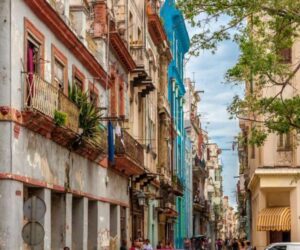In recent years, the appeal of a nomadic lifestyle has surged, attracting individuals from all walks of life. This modern interpretation of an ancient practice combines the allure of travel and adventure with the flexibility of remote work and technology.
Embracing a nomadic lifestyle means redefining the concept of home and finding freedom in mobility. This guide offers insights into making the transition smooth and sustainable.

Essential Gear for the Nomadic Life
Key to the nomadic lifestyle is having the right gear. Among the most important is the ability to generate and store power.
Portable power stations have become indispensable for modern nomads. They provide a reliable source of electricity to charge laptops, smartphones, and other essential devices, ensuring that one can work and stay connected from anywhere.
These stations, often solar-compatible, reflect a commitment to sustainable living, which is a core value for many nomads.
Choosing the Right Accommodation
Accommodation is another crucial aspect. Modern nomads often use a combination of short-term rentals, shared accommodations, and sometimes, vehicles adapted for living. The choice depends on personal preference, budget, and the nature of one’s work.
Some opt for the simplicity of van life, while others prefer renting apartments in different cities to immerse themselves in diverse cultures.
Maintaining a Stable Income
A nomadic lifestyle demands a stable, location-independent source of income. Many nomads turn to freelance work, online entrepreneurship, or remote positions in various industries.
The key is to have a skill set that allows for remote work, be it writing, programming, graphic design, or digital marketing. The gig economy has also opened numerous opportunities for short-term, flexible jobs.
Staying Connected and Productive
Staying productive while on the move is a challenge. It requires discipline and effective time management. Setting a routine, using productivity tools, and creating a mobile workspace can help maintain focus and efficiency.
Connectivity is equally important; ensuring access to reliable internet is essential for uninterrupted work and communication.
Health and Insurance
Health is a primary concern for nomads. Access to healthcare and having suitable insurance coverage are vital. Many countries offer travel insurance or specific health plans for digital nomads.
Staying fit and healthy while traveling also involves regular exercise, a balanced diet, and mindfulness of different health risks in various regions.
Legal and Financial Considerations
Understanding the legal and financial implications of nomadic life is crucial. This includes being aware of visa regulations, tax obligations, and banking requirements.
Nomads often use international bank accounts or digital banking services to manage finances. Staying informed and compliant with the laws of each country they visit is imperative.
Building a Community
Despite the solitary connotation, nomadic life doesn’t have to be lonely. Building a community of like-minded individuals is possible through online platforms, meetups, and co-working spaces. These networks provide support, share knowledge, and offer the chance for personal connections.
In essence, the modern nomadic lifestyle is about freedom, flexibility, and the pursuit of experiences over material possessions. It’s a conscious choice to live differently, to explore, and to grow beyond traditional boundaries.
While this lifestyle isn’t without its challenges, the rewards of unparalleled experiences, personal growth, and the joy of constant discovery make it a compelling choice for many.
As the world becomes increasingly connected, and remote work becomes more feasible, the horizon for living a life on the move expands, offering endless possibilities to those willing to take the leap.


